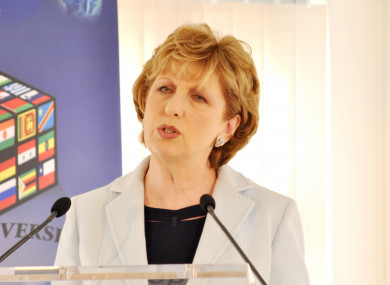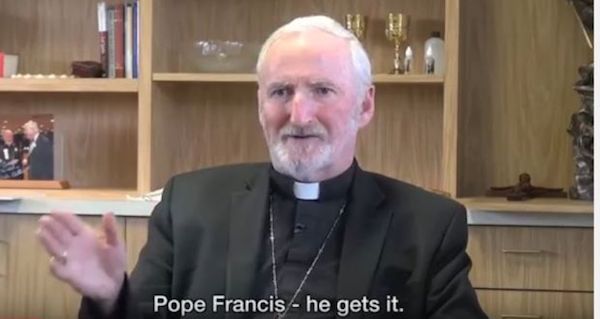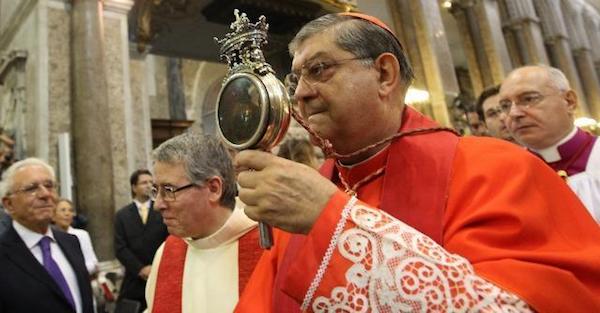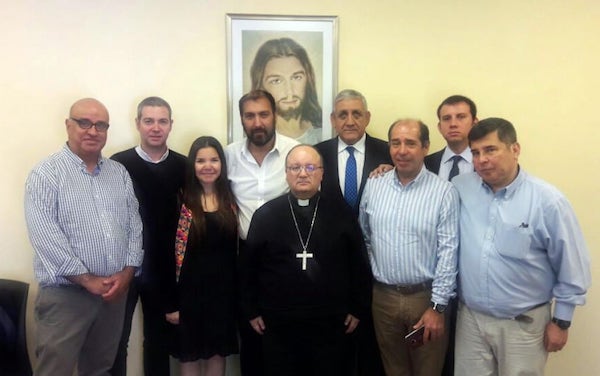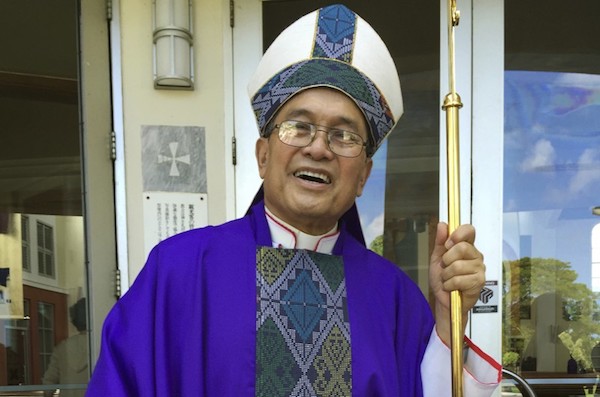
The Vatican on Friday removed the suspended Guam archbishop from office and ordered him not to return to the island after convicting him of some charges in a sex abuse trial.
The Vatican didn’t say what exactly Archbishop Anthony Apuron had been convicted of, and the sentence was far lighter than sentences handed down against high-profile elderly prelates found guilty of molesting minors. It amounts to an early retirement anywhere in the world but Guam, a remote U.S. Pacific territory.
Apuron, 72, is just shy of the retirement age of 75.
The Vatican spokesman declined to comment. Calls placed to the tribunal judge weren’t answered. Apuron’s whereabouts weren’t immediately known, but he was in Rome last month.
Pope Francis named a temporary administrator for Guam in 2016 after Apuron was accused by former altar boys of sexually abusing them when he was a priest. Dozens of cases involving other priests on the island have since come to light, and the archdiocese is facing more than $115 million in civil lawsuits alleging child sexual abuse at the hands of priests.
Apuron strongly denied the charges and said he was a victim of a “calumny” campaign. He wasn’t criminally charged. The statute of limitations had expired.
A statement from the tribunal in the Congregation for the Doctrine of the Faith, which handles sex abuse cases, said Apuron had been convicted of some of the accusations against him. It said he had been ordered removed from office and could no longer live in the archdiocese of Guam.
The conviction and sentence can be appealed. If Apuron appeals, the penalties are suspended until the case is resolved.
In the past, when an elderly or infirm priest has been convicted by the Vatican of sexually abusing minors, he has often been removed from ministry and sentenced to a lifetime of “penance and prayer.” Younger priests convicted of abuse have been defrocked, removed from ministry or forbidden from presenting themselves as priests.
Pope Francis, however, has intervened in a handful of cases to lower sentences, and there are several high-ranking prelates in the Vatican who oppose defrocking convicted molesters and have long lobbied for more lenient sentences against their brother priests.
In the case of Apuron, no restrictions on his ministry as a priest were announced in the Vatican statement.
An ailing, wheelchair-bound Apuron greeted Francis at the end of the pope’s Feb. 7 general audience.
The Catholic community on Guam has been convulsed by the Apuron scandal, with weekly protests also involving accusations of grave financial problems in the archdiocese and the purchase of a valuable property by Apuron for a diocesan seminary that he actually turned over to a controversial Catholic movement to run.
A lay group that agitated for Apuron’s removal, “Concerned Catholics of Guam,” was decisive in pushing for an investigation into the archdiocesan seminary, which Apuron opened in 1999 and moved to an 18-acre (seven-hectare) property thanks to a $2 million anonymous donation.
A Vatican-backed inquiry into the seminary found that the property’s control had effectively been transferred to the Neochatechumenal Way administrators without Vatican approval.
The seminary controversy came to a head when the Carmelite order of religious sisters revealed it had provided the $2 million donation, but said the money had been intended for an archdiocesan seminary to train diocesan priests, not a Neocatechumenal Way seminary to train missionaries.
In a remarkable 2016 news conference to denounce the transfer, Carmelite Mother Superior Dawn Marie came out of her cloister and announced that her small community of nuns had left the island after a 50-year presence because of the “toxic environment” created by the controversy.

